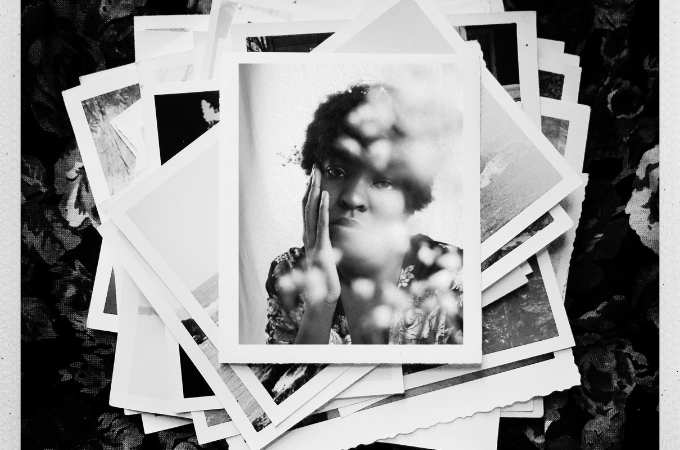
The first time my mother died, I did not feel saddened as I did cheated. Her flesh, now still and lifeless, once shifted and stretched to make room for me. Her bones buckled early on from hitching my skinny torso onto her back with a bright, patterned kente wrapper when I was a baby. Her bent knees, wide and bulbous, spread to position my prepubescent body between her legs as her fingers parted my hair roughly. And later, her stout hands adjusted the curls underneath my graduation cap before I walked across the carpeted platform.
I wondered if my mother liked me. I knew that she loved me in the basic, perfunctory way parents should love their children. Though, I questioned if loving me was her choice or something that felt forced upon her like a routine, medical shot. She seemed to treat motherhood as something to power through, like movie previews, before you got to the good part. So, when she died, it felt jarring but not in the way of being slapped by a pair of gruff hands unexpectedly, rather in the way someone might glance down at their hands one day and realize they no longer resemble ones that belong to them. Because my mother lived mentally adrift amidst the sea of herself, even before she died, she felt absent. The limbs of her mind scoured other landscapes, far from the ones she physically resided in. Landscapes of a home that remained close through calling cards and WhatsApp messages. Her gaze, fixed elsewhere, remained a few inches above me, as though I fell short of what she really wanted to see. The life she wished she could have. A world that she could unzip and walk into, sliding the pull tab back up to close the metal teeth anyone could follow.
When I was younger and she would pour cereal for me to eat in the mornings or come home with new, but outdated school clothes, I thanked her with meaningful looks, which she held briefly before returning to her phone screen to ingest the world of Nigerian propagandist news or worship music. On her tongue rested a myriad of amens and hallelujahs and imela! For every praise she offered up to God, I wondered if my name was attached.
Failing to grow my relationship with my mother, I grew inwards. I learned to discuss matters within myself rather than with my mom. I became a rather contemplative and overthinking child, adopting a pensive look whenever someone spoke to me as though I needed time to chew their words, taste each individual syllable and swish them around my mouth before I gave my response. My teachers noticed how I handed in exams last or submitted an essay right before its deadline. From my peers, I was bestowed the unfortunate nickname, Double AA, which meant African Einstein. (I could not decide what was worse, that my classmates did not know Einstein was spelled with an “E” or that the dreadful nickname also worked to denote the small size of my chest.)
By the time I entered college, I resolved to accept that I would not have the sort of mother-daughter relationships that I saw on TV, the ones in which the mother calls to catch up, asking, Honey, how are you? What’s new in your life? and the daughter responds with, Omg, let me tell you about the craziest thing that just happened to me today. Instead, our conversations remained sterile. Nneka, hand me more palm oil to pour into this soup, followed by a quick head nod on my part, Yes, Mommy.
My career decision did not help our relationship either. I remembered the exact parts of my mom’s face that fell when I told her I was pursuing a path in education. She scoffed and asked why I insisted on wasting my talents doing “a poor man’s job.” Even if I explained to her that my passion for teaching was birthed out of my volunteering at our church’s Sunday school, I knew that she would not take kindly to the idea of me being a teacher. But I secretly hoped that her protests would draw us closer. That she would call my phone weekly while I was at the university, pleading with me to rethink my choice. And that we would continue like that for months— her attempting to push me out of my decision and me determined to press my heels deeper into it— until one of us caved and submitted to the other’s will. But my mother’s objections dried up within two weeks and she continued on living her life independent of me, only contacting my cell when she needed a text message proofread.
I found out the news of my mother’s death before 5th period. I was at work, prepping for my next class while my co-worker griped about her previous one. A girl was face-timing her friend during the lesson and refused to hang up the call. As I offered sympathy for her complaint, I reviewed the Antigone slideshow I was re-using from the previous year’s Greek tragedy unit. We neared the end of the play marked by the final death scenes. Though most of my students, admittedly, had not read the story, the district’s curriculum still wanted kids to practice grappling with questions about narrative themes to help them better prepare for state exams to show their academic growth. But these tests mainly showed the ways in which my students did not measure up to the wealthier, white ones six blocks away. I scanned the discussion questions on the neon yellow and blue slides:
- Do you believe Antigone should have buried her brother?
- Was their family cursed from the start?
- How much agency do people have in their own choices?
I recalled teaching Antigone for the first time three years ago. Most of my students agreed with Antigone’s decision to bury her brother. Given how doomed Antigone’s family was at the start of the play, my kids failed to see a way in which the story would end with Antigone remaining unscathed whether she buried Polyneices or not. She had been born into chaos and consequently, chaos would continue to rule her life. However, question three puzzled them. Many students narrowed their eyes, mulling over how much control people exercised over their own choices. Some believed people had absolute authority over their decisions, while others felt as though external circumstances often inhibited one’s decision-making. At the end of the period, when I brought up the discrepancy in their answers, dramatizing it by instigating, So why should our choices matter if fate we can’t fully control them? as an attempt to hold their slippery interest) they were confused and conceded that perhaps it was a little bit of both. That we did and did not exert control over our choices.
The bell was set to ring in five minutes and my co-worker got up to leave, thanking me for listening, I really appreciate you, Ne-Ne. I felt bad for letting myself get distracted by the slides but told her, Same here! I tapped the screen of my phone and saw a text from my dad saying, Call me, is important. He stayed largely in Nigeria, content with the life that he was building away from me and my mother. Whatever privileges America afforded him had not been tantalizing enough for him to remain here. Growing up, he teetered a lot between the U.S. and Nigeria. But once I started high school, he stopped coming as frequently. Even now, he does not message me unless he needs help sending money to my account or wants me to check my WhatsApp to see some video listing ten ways in which someone could explode at a gas station. I hardly opened his texts. I did not need more ways to welcome anxiety into my life, nor did I want to remind myself of his profile picture depicting him in a tan suit too tight for a man over fifty with a younger-looking woman who seemed as though she was trying to smize via squinted eyes and an awkward half smile. She wore a light blue dress that plunged in the center, revealing a supple set of breasts that belied any childrearing, despite having twin boys a few years ago. When we spoke, I often brushed away my dad’s desire to hand the phone over to them with excuses. I knew they were my brothers, but I felt that having a relationship with them would solidify what my dad had done. How his heart had turned bitter when he realized my mom could not give him the life that he wanted, the one he felt was owed to him as the eldest son of a wealthy, Nigerian businessman.
Most of my phone conversations with my dad lasted less than five minutes, so I figured I had more than enough time to call him. I opened WhatsApp and clicked on the phone symbol across from his photo. He answered quickly.
Nneka?
Daddy? His voice was a shadow of its normal sound.
Eh… my daughter…where are you?
I’m at work, are you okay?
If you can’t talk now, I can call you later.
No, I’m fine. I can talk, please go ahead.
His delay told me something was wrong, something that currently meant everything to me.
Your mom, she… is not good.
What happened to her?
He paused for a while.
What happened to her?! I was not raised to raise my voice at my parents, but the volume of my words was the only thing I could lean on to show my insistence.
Well, I got a call from a hospital saying that she was in a car accident.
I paused.
Nneka, your mother is dead.
The bell rang.
Nneka?
I’m sorry Dad. I have to go; I will call you later.
Students filled the halls like rushing water moments later, Takis-stained hands beat against my door to be let into the classroom. My desk was in the back left corner of the room and the door was adjacent on the far right. I knew none of my students could see me, but still, I dipped my face into my palms to cover the tears that weren’t falling. A feeling, possibly a shade of sadness, began snaking its way through my bones. My body was already changing, morphing to make space for the news my father shared. The hitting against the door persisted. I tried to get to my feet, but they were frozen. Perhaps this was due to the strange feeling moving through my body. Perhaps the news of my mother’s death had cut clean through my torso and was now making its way through my legs, immobilizing them with its weight. Aye, Ms. Chi? Are you going to let us in? We gon be late! The thumping against the wooden door was now peppered with the rattling of the door handle. We know you’re there! Although I was deemed the “nice teacher” given how I treated my kids, their patience was wearing thin.
Coming, one sec! I replied. My voice still sounded familiar, unaltered. I breathed deeply again and, with effort, pushed myself up. Grabbing my phone, I clicked on the camera icon to check the ways in which my face had changed, seeing if there were new lines etched into my forehead or a permanent frown coating my lips. But to my surprise, everything remained constant. My arched brows stayed in place, my eyes retained their deep color of brown, my pointy chin still protruded slightly forward. My skin kept its dark-tawny hue. The only detectable change was a shallow imprint below my cheekbone, where the silver ring on my middle finger pressed against my skin when I held my face. The ring was a gift from a student last Christmas. It was a mood ring with a thick, silver band. Attached to the gift box was a card that read, Dear Ms. Chidoze, Thank you for being the best English teacher I’ve had in a long time! And for always putting up with me disrupting your lunches LOL! I hope this ring always reminds you to be happy. Love, Jasmin. I told her that I was surprised they still made mood rings and wore it solely to show my appreciation, rarely paying attention to its shifting colors. Though, in that moment, I found myself staring at the ring for clarity, to define what I was feeling. I wanted to still the emotions rustling in my body long enough for me to capture their names. But it did not render a solid color. Instead, it showed a mix of pale blue, green, and yellow.
Another second passed before I turned the door handle to allow students inside. They piled into the room as normal, giddy from lunch. Most of them did not notice my silence, but Neesha, one of my favorites, stood by me at the door and narrowed her eyes in my direction. Ms Chi, what’s up? I contemplated telling her. Passing this bulky piece of information onto her so I would not have to hold it alone. I wondered if she would tell me to talk to the principal and see if I could go home early. That would be the prudent thing to do. To go home and call my father back, inquiring about more details concerning her accident. Or I could go to the hospital and see her, but I did not know what hospital she was at. I would need to go home, call my father back, and ask about where I could see her. I would need to do all those things as soon as possible because that would be the prudent thing to do.
But my mother’s death had not settled within me yet, its particles still swirled in the air. My thoughts felt delayed, like the pause between lightning and thunder. I kept waiting for my mind to make sense of the news, to understand the magnitude of death and my mother and my mother’s death. But the thunder, the boisterous sound, never came. I’m fine Neesha, please take your seat so we can start. I’ll call on you first for the warm-up question. She strode to her seat, eager to showcase her abilities. I taught my last two classes that day normally, even staying a few minutes after school to help a student who had more questions about the lesson. He argued that people did not have control over their choices, and I tried to play devil’s advocate the entire conversation to encourage his thinking. Ms. Chi, c’mon! I know you don’t actually believe that people have control over their choices. Do you?
I think that’s a very complicated question. I mean, look at Antigone. Yeah, it seems like her fate was sealed no matter what she decided to do. However, she did make a choice when she defied Creon’s law and gave Polynices a proper burial.
I know, Ms. Chi. But she felt like she had nothing else to lose. I mean her whole family was pretty much gone because of things that were out of her control. She’s making a choice out of a situation in which she basically had no choices.
Yes, but a choice is still a choice. Isn’t it?
On my drive home, I kept thinking about choices and agency. Yes, people had control over their choices. People could decide what time they got out of bed or when to go for a walk. They decided how much sugar to put in their coffee and which path to take on their way to work. Unless, of course, the route they chose, for some reason deviating from their regular way―perhaps due to a road closure or a GPS traffic prediction—had some unforeseen truck swerve into their lane and caused them to endure a fatal car accident and they could no longer function and were declared dead. Then, they would cease to have choices and agency because you can’t choose if you’re dead. Death left no room for choices.
At a red light, I adjusted my rearview mirror. For the first time, catching sight of myself since my fifth period. I looked very normal still. I guess I was waiting for a big change in my appearance, something to signify a before and after. You must be a sociopath. You’re a fucking, cold-hearted sociopath. Why aren’t you crying? You cry at dumb romance books, but you can’t cry for your mother? I waited, once again, for the thunder to come, but it stalled. By the time I got into my apartment and settled onto my worn couch, I prepared a set of questions to ask my dad for when I called him back.
- How are you doing?
- When did the accident happen?
- What hospital was she at right now?
Make sure to be sad, I told myself. I needed to be sad and sound sad because sad is what you are supposed to be when someone you love passes away. Even if I was not particularly sad at that moment, the feeling would surely arise soon enough. Even if I did not know her well, she was still my mother.
My dad picked up the phone quickly again.
Nneka?
Hi, daddy. How are you doing?
Eh…I’m hanging in there. What about you?
I sighed and made my voice small. I’ve been crying since I got home from work.
My daughter, ndo. I know it must be very hard.
When did the accident happen?
Early afternoon, around 2 pm. The hospital called me because I was her emergency contact. They said she must have lost control of the car and crashed into the rail on the side of the road.
I tried to smother my annoyance at the thought of my mom listing him – a man who was not around and left her with a daughter she did not know how to raise – as her emergency contact.
What hospital is she at? Where can I go see her?
Eh… I think it’s called St. John’s or something? Let me text you the address.
Thank you, I’ll leave now.
Okay…good. Be quick before they move her. Please call me back if you need anything.
I sniffled. Okay, dad. I will talk to you soon.
Wait… Nneka?
Yes?
Eh… I know you don’t believe in these things in our culture really. But I, umm, just went to a special doctor near my compound in the village I was raised in to see if he could somehow revive your mother. He told me that if you take a photo of your mom and place it on her stomach, then her spirit in the photo will trade with the spirit in her dead body. But this will only last a few minutes and after you do it once, you cannot do it again. I paused. My father, someone who was very vocal about how he followed Christianity, still went to witchcraft doctors. I always thought religions felt separated with blunt edges, but perhaps my father decided they could be blended in some ways. Nneka? Can you still hear me?
Yes, thank you for telling me that. I’m going to see her now. I’ll talk to you soon.
Okay, make sure you bring a photo and let me know if you have questions.
Yes… I will.
Take care, my daughter… I love you. The words felt both full and empty, like puffed cheeks packed with nothing but air. I knew death made people sentimental. I knew that my dad wanted to act as a source of comfort, but everything felt inappropriate. His so-called love for me had not been heavy enough to anchor him in my life.
You too.
The drive to the hospital felt precarious. I turned down familiar roads and streets, but they looked different. They blurred in front of me, and I suddenly realized I was crying. Finally, I had a moment of clear feeling. Emotion surged and spun through me, but instead of sadness, I felt anger. Then I felt ashamed for feeling angry at a dead person. She did not choose to die, just like she did not choose to be my mother. Or to be left with the residue of a failed marriage.
I parked my car in the visitors’ lot of the hospital and wiped my eyes with the flap of my black blazer. Within the time span, I moved from the front desk to my mother’s room, I tried to suppress the anger glowing in my chest, but it stayed. It remained raw and hot like the flesh of a scorched limb. The nurse who took me to the room in which my mother’s body lay was a short, white woman with a high ponytail that slouched slightly to the left. She had a vertical tattoo descending on the nape of her neck. It read 01.22.93 with a tiny heart at the end. I wondered what this date meant to the woman. Perhaps it was her birthday or the date of her anniversary or the birth of her first child. Either way, I hoped it brought the woman joy. I hoped it commemorated something that she chose, rather than something that was forced upon her. After turning through what felt like a maze of hospital hallways, the nurse stopped in front of a room, and gently whispered, You can go inside whenever you’re ready. I’m so sorry for your loss, before she walked off. I shut the door behind me. I wanted to tell her thank you and apologize for whatever loss she may have also experienced, but I didn’t, trying to hold to the hope that her tattoo was a choice of happiness.
Inside, the room felt stuck. The mass of white sheets, the large and boxy medical equipment, the strange canvas painting of a sunrise above the bed all felt frozen, as though they had been there since the very beginning of time. I saw my mother looking small and covered like she was fused with the scene and no longer stood as a distinguishable entity. When I took a step closer, it looked like her hips, once bustling with curves, had become straight lines tightly secured by blankets. There were bandages on her face, one just below her left cheekbone and another that spanned the entirety of her head like a cap. I reached to hold her hand, but it felt inappropriate, like an invasion of this preserved scene. My body remained hot with anger, but the feeling soon morphed into embarrassment. Why did it feel wrong to take her hand in mine? There had been countless times that she held my hand when crossing the street as a child or pulled me along to keep up with her at the grocery store.
I should have run to her bedside and crouched down, sandwiching her hand between mine, pleading with God to bring her back, offering a lifelong pledge of good works and obedience if it meant another moment with her. But I couldn’t bring myself to do that. For once, the choice to hold her hand was up to me, and I couldn’t. Instead, I dug my hand into my purse, searching. I grabbed my wallet and unzipped one of its smaller compartments to pull out a picture of my mom. I had disregarded the conversation with my father because I did not think I would go through with his strange request. And yet I found myself clutching a small, two-by-three-inch photo in my anxious hands. Perhaps this was another side effect of death. It necessitated the suspension of sanity. The image showed clear signs of age. The water-damaged corner lifted as though reaching to hug the opposite side of the photo. A tear was present at the bottom of the picture, winding up towards its center. But tape had been affixed to the back of the image and used to hold the split photo together, leaving behind a thin, white line on the front.
I remember when I acquired this photo from my mother. It was the winter of my junior year in college, and I had returned home for the holiday break. As usual, she cooked more food than we could consume. The kitchen teemed with scents of stockfish, goat, and cow feet. I, of course, helped her prepare all the food. Over the years, I became acquainted with my mother’s kitchen. I quickly caught onto most of the Nigerian dishes that she made, from egusi soup to nkwobi. I only cooked these dishes when I came home, fearful that my housemates would complain about the pungent smells.
That night we were making goat pepper soup. I wanted to tell her about my most recent student teaching assignment, or the way I found the perfect oil temperature for frying puff-puff last month, or about the guy from my gym who always eyed me despite the wedding ring adorning his finger, or the sadness I felt after receiving another pointless message from my dad that week. I wanted to tell her all these things but could not bring myself to give sound to the thoughts, fearful that her disinterest would loom even louder than my words. Instead, mother and I stood side by side completing the process in silence, broken only by the clanging of pots and the strike of the cleaver against the bloodied cutting board. She pulled out two wide, plastic bowls of hacked meat, sucking her teeth before whispering, I swear that man is starting to cheat me. He keeps giving me smaller goats but charging me the same price. Nonsense. She washed the shaved skin first before handing it to me to slice into smaller pieces. While I worked on the skin, she carved the lobes of the lungs, the kidneys, and the heart. Each time she cut through the heart I clenched my teeth at how much it resembled that of a small human. A child. If my mother had the same thought, she did not show it. She butchered through the atrium and ventricles with a blank expression on her face.
Her phone rang right after we finished wiping the counter of watery-red spots that had bounced off the goat’s flesh each time my mom brought down the blade. She asked me to click the green answer button while she finished washing her hands. It was her younger brother, Chioma. Ha! Chioma, kedu? Her voice walked on stilts whenever she took calls from Nigeria. I used to think the reception was bad, but perhaps all the emotions she seemed to stow away came out all at once during her Nigerian phone calls. I wondered what it was like to have siblings, people who could know you painstakingly well, whether you wanted them to or not. The doctor advised my mother against having any other children after I was born, due to a prolapsed uterus, another misfortune I inflicted on her.
Mba, no! I don’t have it Chioma. She dried her hands and brought the phone to her ear. Are you sure? Okay oo, let me check, hold on. She ran upstairs for a few minutes, and I heard the muffled sounds of drawers opening and closing. She came back down with a burgundy, leather-bound photo album and placed it on the slick countertop. I had never seen it before despite the countless times I ventured through her room in search of tweezers, nail clippers, or a missing pair of socks. My mother flung open the cover and flipped through the pages quickly as if she were using a calling card that was down to its last few minutes. She stopped abruptly a little before the halfway point of the book. Ha! Chioma oo! Lekwa ya! I have the picture.
The small picture she seemed to be referring to was one that displayed two young children who I assumed to be my mother and Chioma. She towered over him in a long black dress with a small afro hugging the crown of her head, while his was shaved clean, emphasizing a forehead that jutted out like the edge of a misshapen rock. They both smiled heartily as if the person behind the camera just finished telling an inside joke that only the three of them shared. My mother peeled back the plastic protective cover in the album and held the picture in her hand. As she walked into the living room with the image pinched between her fingers, my eyes held onto the picture on the next page of the photo album. It was a woman with deep tawny skin, similar to mine, except a shade or two darker. Her pink and purple dress snagged around her waist to highlight the outline of a budding baby bump, despite her young-looking appearance. She held a piece of bread in one hand and posed in front of some store. Her expression in the image seemed childlike, possibly silly. Her resemblance to me was striking.
While my mother remained preoccupied with her phone call, I slid the picture out from behind the plastic film and pocketed it. If my mother noticed the missing photo later, she gave no indication of it.
I now tugged at this image of my mother from my wallet. Placing it on her, I waited. It didn’t happen like it does in the movies. There was no slow rise, followed with raised arms parallel to the ground. No eyes snapping open with the sound of a slow moan. No desire for human flesh or blood. There was only a slight twitch in her hand, as though life was gradually being blown back into her body. Her chest rose and fell softly, inflating her previously failed organs. Her eyes, perhaps still heavy with death, opened last.
“Who are you?” she said, having shifted her gaze to the young woman staring at her on the edge of her bed. Her voice was different, younger than what it had turned into over the years. I knew my body was in the room, but I felt I was somewhere far away, as though my mother had not come back into my life, but I had transferred over into hers. Followed her into the realm of the dead, or the almost dead. Wide-eyed, I continued staring at her in disbelief, searching for other ways in which death had changed her. But she appeared the same: dark eyes, full lips, and rounded face accentuated by a thick nose. “Who are you? Whose body is this?” she asked again, with more strength.
“Nneka,” I replied as though my name would explain everything. But I quickly added, “Your daughter.” There was a pause, and then she shut her eyes. I remembered my father’s words about her revival being short-lived and my stomach buckled. Had I wasted it on something so trivial as telling her my name. Tears collected behind my eyes, ready to fall. This time, there was no stall between the lightning and thunder.
“Oh,” she replied after another minute had passed. Her eyes barely opened as though she were shielding them from severe sunlight.
“We don’t have a lot of time together. Like I said, I’m your daughter. Nneka. I’m twenty-six years old and you died earlier today in a car accident. My dad, your former husband, told me how to, I guess, resurrect you for a little while so we can talk.” Silence filled the room again, clinging to the walls, sheets, and the space between my mother and me. Eventually, she let out a few more labored breaths as though reacclimating her lungs to the taste of air.
“Nneka,” she said my name as though inspecting it for holes or imperfections.
“Sorry, I know this must be overwhelming and confusing for you. It is for me too,” I replied. I heard the words leaving my mouth but did not register them to be my own.
“Ị mara mma. Fine gal. You’re very beautiful,” she said, “It’s good I had a beautiful daughter.”
My face grew warm. My mother was usually stingy with her compliments of me, often responding with Good whenever I asked her how I looked. Perhaps being generous with compliments was a mark of her younger self.
I averted my gaze towards my hands. “Thank you.”
“You mentioned my husband before? Former?” she replied.
“Um, yes. Former. That’s correct.”
A smile bled onto her face as she shook her head slightly. Each motion of her lips seemed to require a great deal of effort and precision, as though any sudden movement could take her out of this realm and back into the one she had departed from. “I knew it wouldn’t work out,” she said with a light laugh.
“What?” I asked. She chuckled again. “What?” I was puzzled at how humor had snuck its way into our conversation.
“I told my mother not to force me to marry him. He was a foolish man. Always obsessed with money and image.”
I nodded. “He left to find someone who could give him a son.”
“I didn’t have a son? You don’t have siblings?”
“No, you weren’t able to have kids after me,” I said, my gaze shifting back to my hands. She paused and shut her eyes again for what felt like hours. I was convinced that my time was up. That she had opened the door to the other realm and been swallowed whole once again.
“He found another woman?” she asked finally.
“Um, yes. They live in Nigeria. Two boys, but I haven’t met them.”
“Why?”
I shrugged. “I don’t think I care to. He shouldn’t even have them.”
A smile, this time almost imperceptible, slid onto her face. “You sound like me.”
“What do you mean?”
“I refused to meet my father’s children too. The ones from his mistress.”
“I didn’t know grandpa had a mistress.” For once, I was the one to initiate a pause. I churned her words around in my mind, frustrated that I didn’t know such an intimate detail of her life.
“Nneka, my daughter, why did you bring me back?” Her mouth tripped on the word “daughter.”
“I wanted to ask you some questions.”
“Yes?”
I wished I had prepared a set of discussion questions for this moment, but most of me was still in disbelief. My mind was still caught off guard, so I blurted the first questions that came to my mind. “Were you happy to have me as your daughter? Were you happy to love me?” As soon as the words fell from my mouth, I felt embarrassed, like a whiny child. Of course, she wouldn’t know the answer to that. She didn’t know me yet. She was still pregnant when the photo was taken. Why did I continue wasting this time I had with her?
“I don’t know.” A sigh escaped my mouth before I had a chance to stifle it. “I’m sorry.” Hearing her apologize for something that was not her fault covered me in guilt.
“No, it’s okay. It was a stupid question. Don’t apologize.”
“Nneka, nwa m nwanyị. If I raised a daughter who has to ask me a question like that, then I did do something wrong.” She lifted her hand shakily and placed it on top of mine before continuing. “Marriage must have hardened me. You see, I loved my life before I was married. I enjoyed being with my siblings and spending time with my friends from school. I did not want that to change. So, when my parents found me some guy to marry, I was upset. I didn’t want to be with him. But his dad was a big man, and my parents knew that he would be able to provide for me in America…” She took a long pause before continuing, as though her next words were the size of a huge stone she was trying to unearth nd force to the surface. “And so, we married, and I came here. But I still had that desire to go home and pick back up the life I was leaving behind. And from what you said about your dad, it seems being with him only increased my want to leave. I must have checked out. And for that, Nneka, I am sorry. Forgive me, biko.”
Tears fell quickly down my face. I chewed on what she said but was not sure how to respond. I felt my body shifting to make space again for her words. Then, her eyes shut again, and I waited. Her body remained shrouded in white gauze and bandages and blankets. I held her hand between mine. This time, I knew she wouldn’t wake up again.
Still, I waited.
Photo by Jakayla Toney on Unsplash



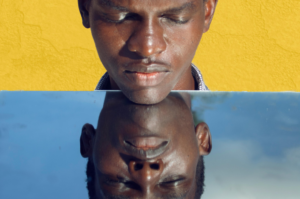
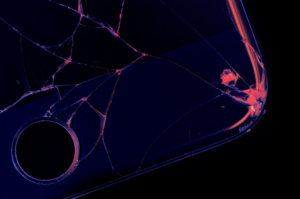


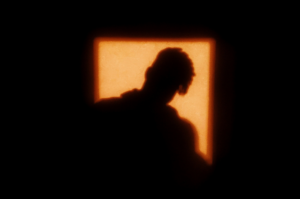
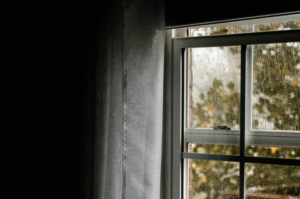

COMMENTS -
Reader Interactions